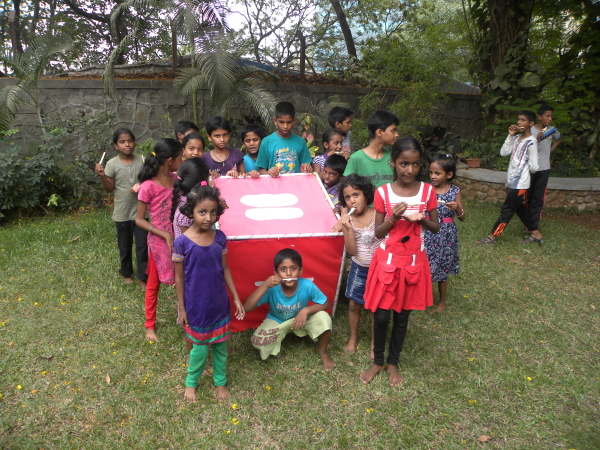
Feb 3, 2016 | Focolare Worldwide
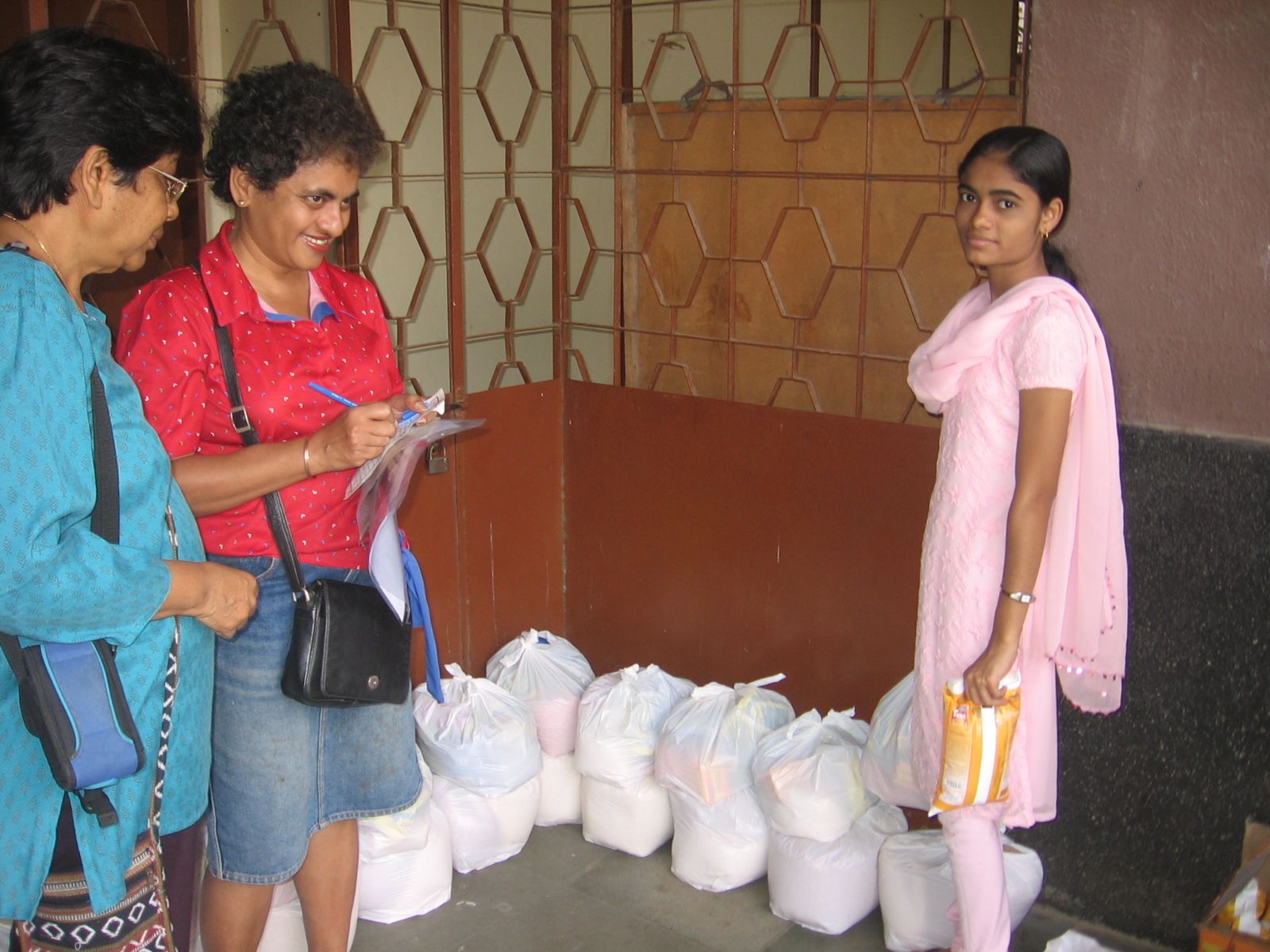 “One can either walk away from the problems in another’s life or embrace the challenge head on. For a Movement that has chosen the suffering face of Jesus on the Cross, it is only natural that the Focolare in Mumbai chose to welcome the challenges among its communities with love and dedication,” writes Annabel, a young journalist, member of the Focolare in Mumbai. Santacruz Project and Udisha have come to symbolize the Movement’s strong commitment to social justice, universal fraternity and, above all, love for Jesus in the other in this city. Santacruz Project started in 1992 as a direct response to the needs of families struggling with poverty, addictions and lack of jobs. It provides basic food rations and household supplies so that children from these homes can continue their education. “We realized that many of these little girls attending our activities didn’t even have enough to eat at home. In order to love them concretely, we had to empower their families to give them enough food and keep them in school. We struggled initially to fund this project, pulling together our resources and gathering contributions from the larger Focolare family here in India. I’m happy that we’ve been able to sustain this project for over 25 years now,” says Joan Viegas, one of the earliest volunteers from Mumbai involved in the project. “Somewhere along the way we realized that spiritual nourishment was equally necessary for these families to face society’s challenges. We organized Word of Life meetings for the girls’ mothers who desperately needed a space to express themselves, share their troubles and find spiritual strength. One of us, Josephine Passanha who is passed away, started conducting meetings in Konkani for these women who could not speak English, and also organized useful workshops on life skills such as budgeting and family planning to empower them.“
“One can either walk away from the problems in another’s life or embrace the challenge head on. For a Movement that has chosen the suffering face of Jesus on the Cross, it is only natural that the Focolare in Mumbai chose to welcome the challenges among its communities with love and dedication,” writes Annabel, a young journalist, member of the Focolare in Mumbai. Santacruz Project and Udisha have come to symbolize the Movement’s strong commitment to social justice, universal fraternity and, above all, love for Jesus in the other in this city. Santacruz Project started in 1992 as a direct response to the needs of families struggling with poverty, addictions and lack of jobs. It provides basic food rations and household supplies so that children from these homes can continue their education. “We realized that many of these little girls attending our activities didn’t even have enough to eat at home. In order to love them concretely, we had to empower their families to give them enough food and keep them in school. We struggled initially to fund this project, pulling together our resources and gathering contributions from the larger Focolare family here in India. I’m happy that we’ve been able to sustain this project for over 25 years now,” says Joan Viegas, one of the earliest volunteers from Mumbai involved in the project. “Somewhere along the way we realized that spiritual nourishment was equally necessary for these families to face society’s challenges. We organized Word of Life meetings for the girls’ mothers who desperately needed a space to express themselves, share their troubles and find spiritual strength. One of us, Josephine Passanha who is passed away, started conducting meetings in Konkani for these women who could not speak English, and also organized useful workshops on life skills such as budgeting and family planning to empower them.“ 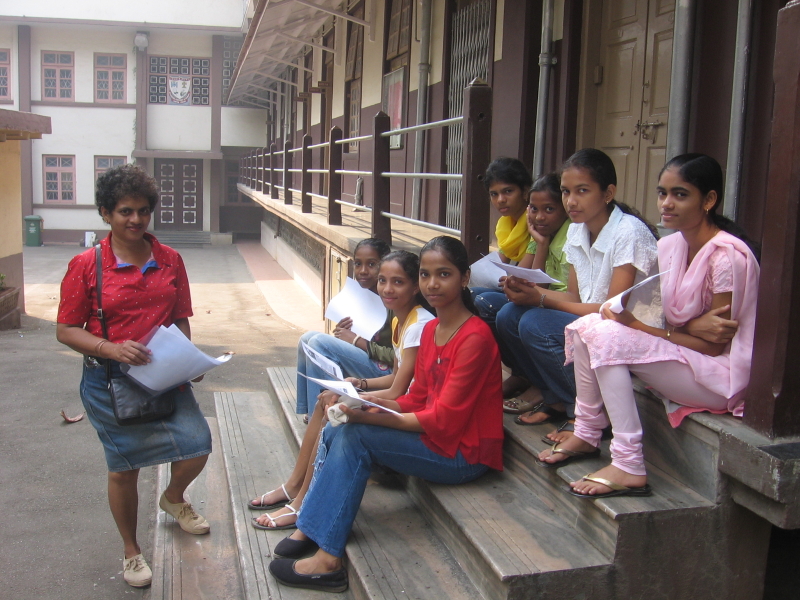 During her first visit to India in 2001, Chiara encouraged the members of the Focolare in Mumbai to reach out even further to people at the periphery of society. This gave a strong thrust to the already on-going Udisha Project in Goregaon which focusses on the holistic development of children from underprivileged backgrounds. Literally translating as a ‘ray of light’ in Sanskrit, Udisha is lighting up the lives of over 120 children today through its various activities such as academic tuition classes, occupational therapy, anger management sessions, medical camps and programs promoting value education and parenting skills. Counselling has becoming one of Udisha’s key specialisations, helping many children and their parents solve many day-to-day challenges, sometimes even saving lives from suicidal tendencies. Self-Help Groups empower mothers of these children to manage their household income and supplement it by starting small enterprises such as crochet bag making, catering and beautician services.
During her first visit to India in 2001, Chiara encouraged the members of the Focolare in Mumbai to reach out even further to people at the periphery of society. This gave a strong thrust to the already on-going Udisha Project in Goregaon which focusses on the holistic development of children from underprivileged backgrounds. Literally translating as a ‘ray of light’ in Sanskrit, Udisha is lighting up the lives of over 120 children today through its various activities such as academic tuition classes, occupational therapy, anger management sessions, medical camps and programs promoting value education and parenting skills. Counselling has becoming one of Udisha’s key specialisations, helping many children and their parents solve many day-to-day challenges, sometimes even saving lives from suicidal tendencies. Self-Help Groups empower mothers of these children to manage their household income and supplement it by starting small enterprises such as crochet bag making, catering and beautician services.  “Udisha has evolved into a full-fledged organisation with the help of the larger Focolare community all over Mumbai, as well as with the Support at a Distance help we receive from the New Families Movement of the Focolare”, says Brian D’Silva, who has been spearheading the project since the beginning. “We try to reach out to more families every day, always bearing in mind that it is Jesus who we serve in each individual. It gives me great satisfaction to see our children from Udisha who are well-educated, employed and positively contributing to society today.”
“Udisha has evolved into a full-fledged organisation with the help of the larger Focolare community all over Mumbai, as well as with the Support at a Distance help we receive from the New Families Movement of the Focolare”, says Brian D’Silva, who has been spearheading the project since the beginning. “We try to reach out to more families every day, always bearing in mind that it is Jesus who we serve in each individual. It gives me great satisfaction to see our children from Udisha who are well-educated, employed and positively contributing to society today.”
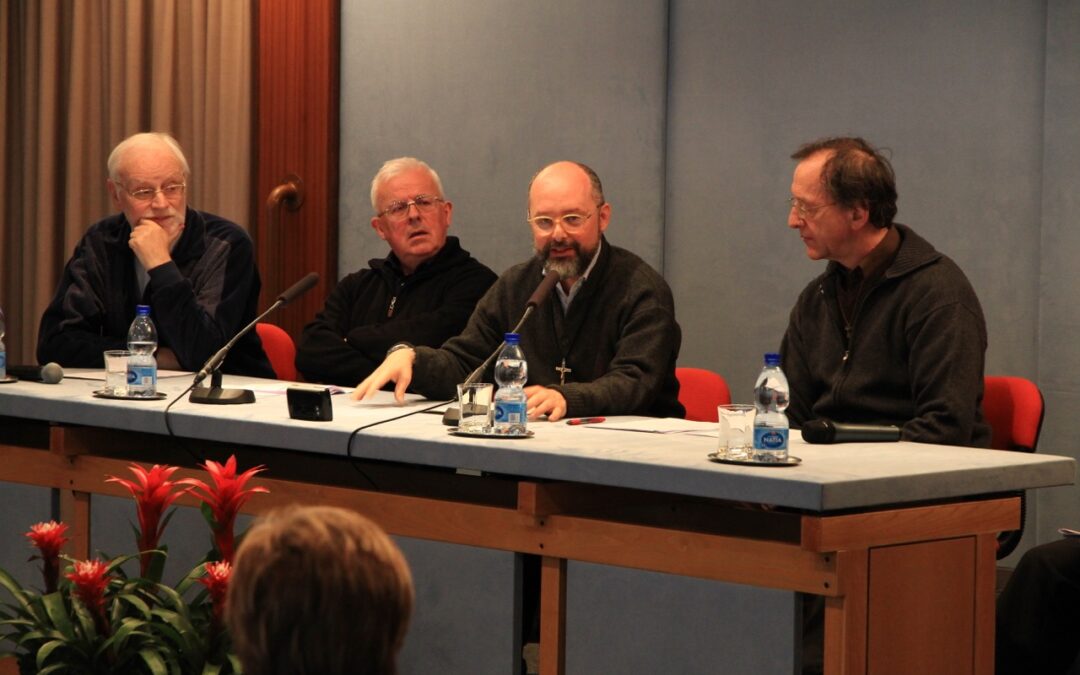
Feb 2, 2016 | Non categorizzato
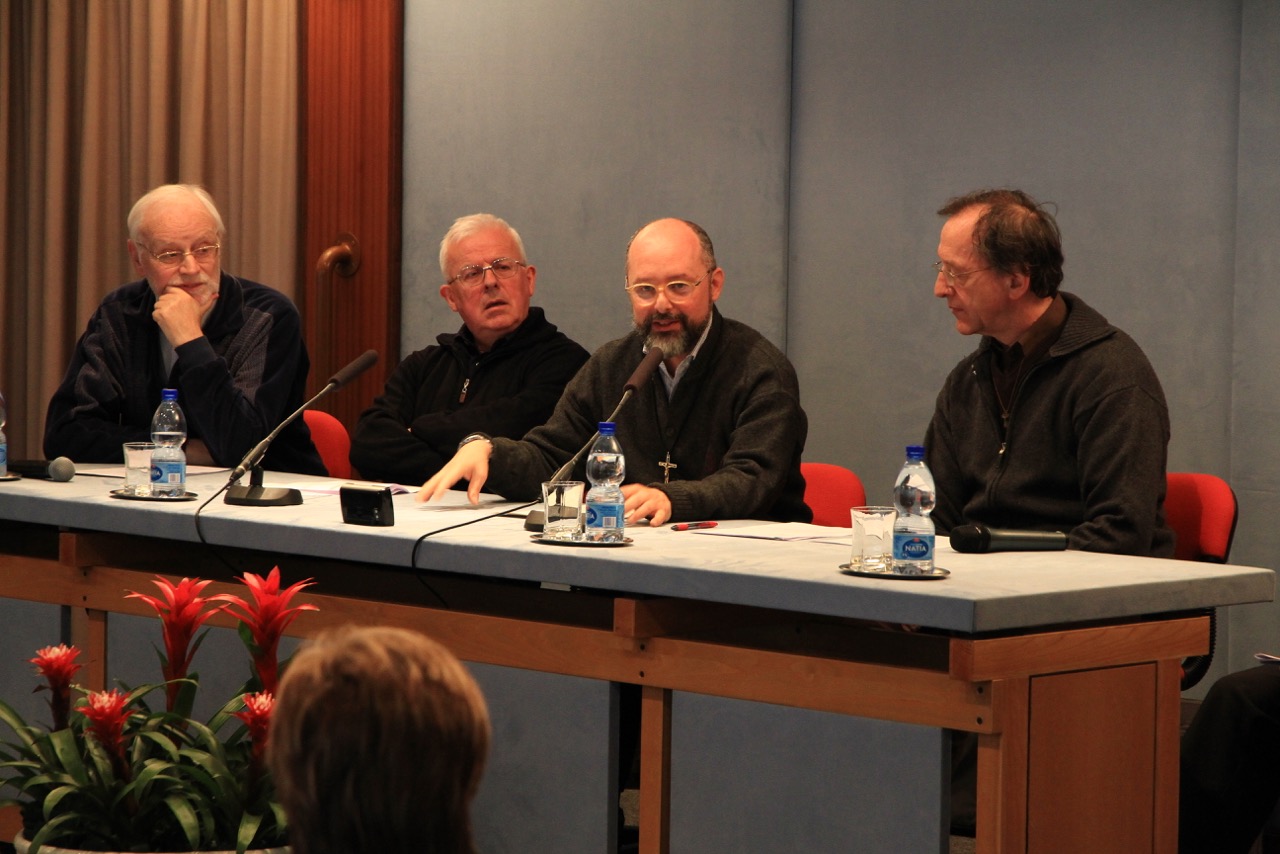 Fr Salvo, could you draw a conclusion to this regard? «It was the endowment of a very strong grace that touched also the ample strata of the Church, besides of course, affecting all the consecrated members. Pope Francis imbued this year with particularly inspiring thoughts and events also through the Congregation for the Institutes of Consecrated Life and the Apostolic Life Societies (CIVCSVA). Of course it is still too early to take stock of everything, since I am convinced that it was an in-depth event and the fruits will be fully seen as time passes.» What role did the Religious members of the Focolare play? «The particular sensitivity to unity, typical of Chiara Lubich’s spirituality, offers to the members of the Movement, a sort of know-how that inspires them to give priority to relationships and transform them into communion. The religious men and women belonging to the Focolare committed themselves to the initiatives of their communities and dioceses, or to national activities and those of the universal Church, giving their imprint of communion, a spirit the Church hoped would develop more and more as the “home and school of communion.” In one of the European countries, it was precisely the religious and consecrated people of the Movement who proposed the project of an encounter for consecrated youth, to the Conference of Major Superiors. The heads highly appreciated the contents and methods, so as to make it their own initiative. Around 250 young religious participated, with really important impressions and results.» And with regard to the initiatives set up by the Holy Father and the Congregation of Consecrated Life? Great importance was given to Pope Francis’s invitation to show the joy of consecrated life and to prophetically act in the “existential outskirts,” as expressed in his Apostolic Letter to all the consecrated men and women: “I expect you to «wake the world up», because the typical feature of consecrated life is prophecy.” He thus underlined a specific attribute of Religious Life characterised by that of being harbingers of charismas, that is, of gifts for the good of the entire Church. TCIVCSVA then developed the thoughts of Pope Francis with three letters: one dedicated to Joy which must distinguish the consecrated religious (Rejoice); another dealing with their capacity to be prophets for the world (Keep Watch); and the third, a contemplative dimension of their life (Contemplate). These three documents are a reference point for the future of Consecrated Life in the Church. As to the events, we certainly must note the meeting in Rome of the young religious last September. It was a convention of great impact, with 5,000 participants from all over the world, and lasted 4 days. It is not something we see often. It also impressed me because of the significance of the ecumenical Dialogue of religious men and women held from 22 to 25 January 2015. This was an absolute “first” in the Vatican, which Pope Francis wanted so much, and a sign of the progress of the journey among Christians of various denominations. Fr. José M. Hernández, a Claretian, said that each one is called to “be a bridge and not a trench” among Christians. I think this is a good augur which well expresses the rest of the journey we still have to undertake.»
Fr Salvo, could you draw a conclusion to this regard? «It was the endowment of a very strong grace that touched also the ample strata of the Church, besides of course, affecting all the consecrated members. Pope Francis imbued this year with particularly inspiring thoughts and events also through the Congregation for the Institutes of Consecrated Life and the Apostolic Life Societies (CIVCSVA). Of course it is still too early to take stock of everything, since I am convinced that it was an in-depth event and the fruits will be fully seen as time passes.» What role did the Religious members of the Focolare play? «The particular sensitivity to unity, typical of Chiara Lubich’s spirituality, offers to the members of the Movement, a sort of know-how that inspires them to give priority to relationships and transform them into communion. The religious men and women belonging to the Focolare committed themselves to the initiatives of their communities and dioceses, or to national activities and those of the universal Church, giving their imprint of communion, a spirit the Church hoped would develop more and more as the “home and school of communion.” In one of the European countries, it was precisely the religious and consecrated people of the Movement who proposed the project of an encounter for consecrated youth, to the Conference of Major Superiors. The heads highly appreciated the contents and methods, so as to make it their own initiative. Around 250 young religious participated, with really important impressions and results.» And with regard to the initiatives set up by the Holy Father and the Congregation of Consecrated Life? Great importance was given to Pope Francis’s invitation to show the joy of consecrated life and to prophetically act in the “existential outskirts,” as expressed in his Apostolic Letter to all the consecrated men and women: “I expect you to «wake the world up», because the typical feature of consecrated life is prophecy.” He thus underlined a specific attribute of Religious Life characterised by that of being harbingers of charismas, that is, of gifts for the good of the entire Church. TCIVCSVA then developed the thoughts of Pope Francis with three letters: one dedicated to Joy which must distinguish the consecrated religious (Rejoice); another dealing with their capacity to be prophets for the world (Keep Watch); and the third, a contemplative dimension of their life (Contemplate). These three documents are a reference point for the future of Consecrated Life in the Church. As to the events, we certainly must note the meeting in Rome of the young religious last September. It was a convention of great impact, with 5,000 participants from all over the world, and lasted 4 days. It is not something we see often. It also impressed me because of the significance of the ecumenical Dialogue of religious men and women held from 22 to 25 January 2015. This was an absolute “first” in the Vatican, which Pope Francis wanted so much, and a sign of the progress of the journey among Christians of various denominations. Fr. José M. Hernández, a Claretian, said that each one is called to “be a bridge and not a trench” among Christians. I think this is a good augur which well expresses the rest of the journey we still have to undertake.»
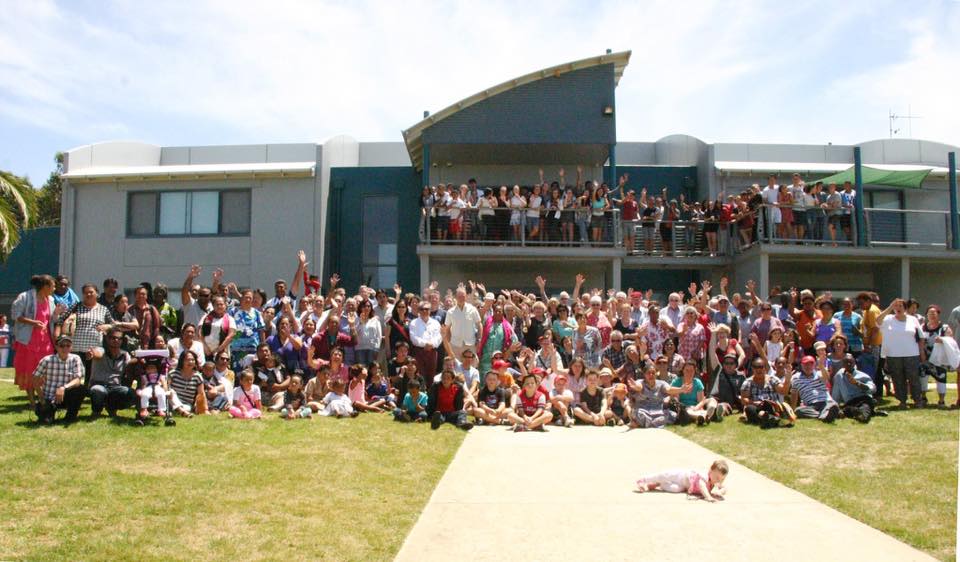
Feb 1, 2016 | Focolare Worldwide, Senza categoria
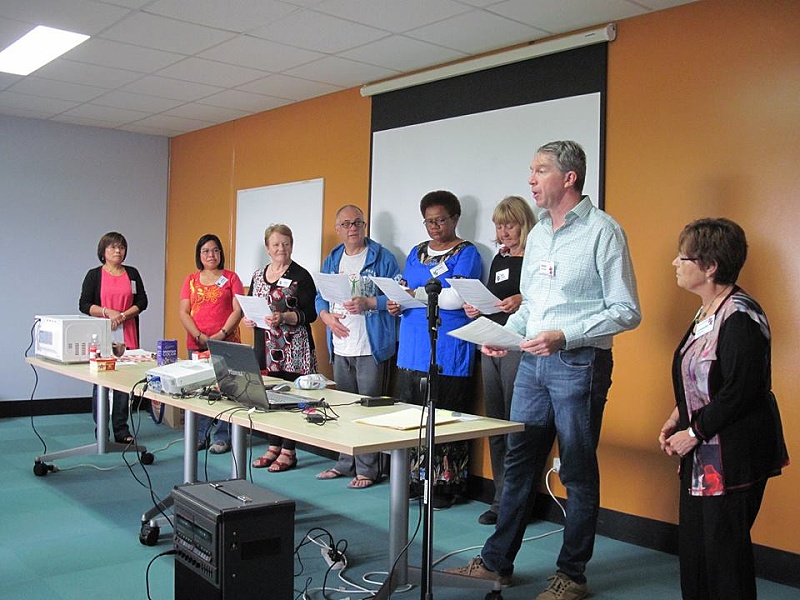 Five hundred and forty people from different countries – half of them families and young people – were together for four days. There were two refugees from Burundi and a group from Syria, 169 people from the Pacific Islands (New Caledonia, Wallis & Futuna, Fiji and Kiribati). The Mariapolis was held on January 13-17 on Phillip Island, 150 km from Melbourne (Australia). The title chosen for the event was “Building Unity Together”. The organisers write: “This central point of the spirituality of unity was examined in a formal presentation and immediately embraced and lived out each day of the Mariapolis by all the participants, some of them from very different cultural backgrounds.”
Five hundred and forty people from different countries – half of them families and young people – were together for four days. There were two refugees from Burundi and a group from Syria, 169 people from the Pacific Islands (New Caledonia, Wallis & Futuna, Fiji and Kiribati). The Mariapolis was held on January 13-17 on Phillip Island, 150 km from Melbourne (Australia). The title chosen for the event was “Building Unity Together”. The organisers write: “This central point of the spirituality of unity was examined in a formal presentation and immediately embraced and lived out each day of the Mariapolis by all the participants, some of them from very different cultural backgrounds.” 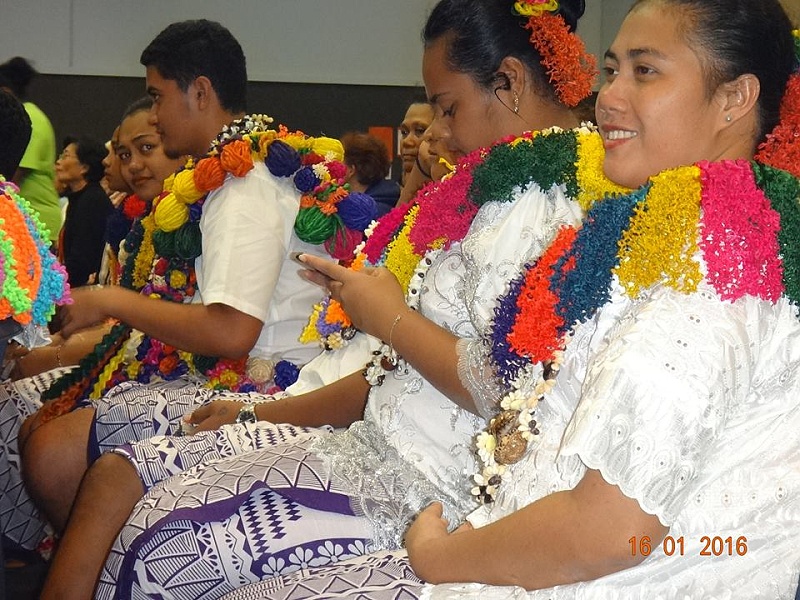 The people who came from the Pacific Islands made a great contribution beginning from their common witness of raising the money to be there: “like the representative from Kiribati who took leave of his work as a seaman in order to be able to attend. There were many beautiful testimonies of Gospel living and how they managed to overcome the many economic problems and raise the money to pay for the flight and lodging. A communion of goods was set in motion a bit like that of the early Christians, and it made everyone experience God’s personal love for them because of the Providence that arrived in many different ways. When they arrived at the Mariapolis they spoke of finding the same family that was no different from the one they had left behind.”
The people who came from the Pacific Islands made a great contribution beginning from their common witness of raising the money to be there: “like the representative from Kiribati who took leave of his work as a seaman in order to be able to attend. There were many beautiful testimonies of Gospel living and how they managed to overcome the many economic problems and raise the money to pay for the flight and lodging. A communion of goods was set in motion a bit like that of the early Christians, and it made everyone experience God’s personal love for them because of the Providence that arrived in many different ways. When they arrived at the Mariapolis they spoke of finding the same family that was no different from the one they had left behind.”  Every day ended in an atmosphere of celebration and gratitude for each ethnic group that was represented, like a small slice of a united world. Everyone felt that “The unity of peoples was not a utopia.” The people from the islands stayed on for an extra week at the Mariapolis Centre in Melbourne, where they attended a course on family life. “Each day is like a mutual love competition, and we look forward to the next activity with much joy and enthusiasm. There’s a saying, “From little things big things grow”, and we’re sure that great things will grow from Jesus in our midst through our mutual love.” See on Facebook: Phillip Island Mariapolis 2016
Every day ended in an atmosphere of celebration and gratitude for each ethnic group that was represented, like a small slice of a united world. Everyone felt that “The unity of peoples was not a utopia.” The people from the islands stayed on for an extra week at the Mariapolis Centre in Melbourne, where they attended a course on family life. “Each day is like a mutual love competition, and we look forward to the next activity with much joy and enthusiasm. There’s a saying, “From little things big things grow”, and we’re sure that great things will grow from Jesus in our midst through our mutual love.” See on Facebook: Phillip Island Mariapolis 2016
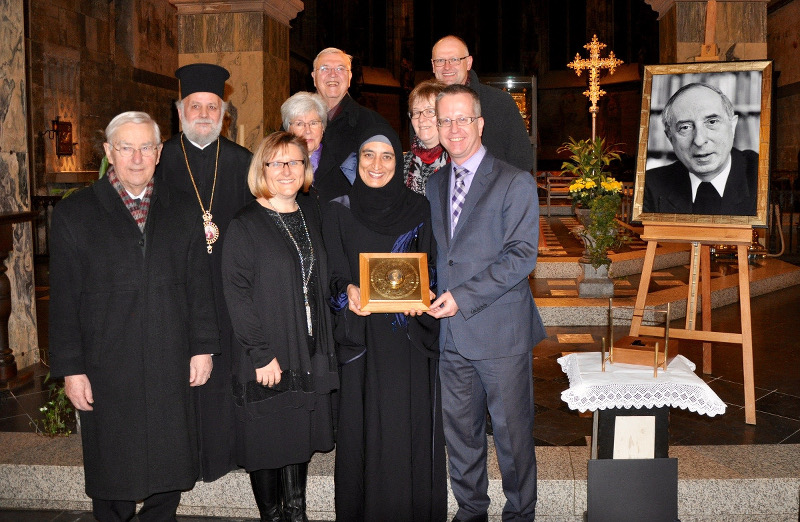
Jan 31, 2016 | Focolare Worldwide
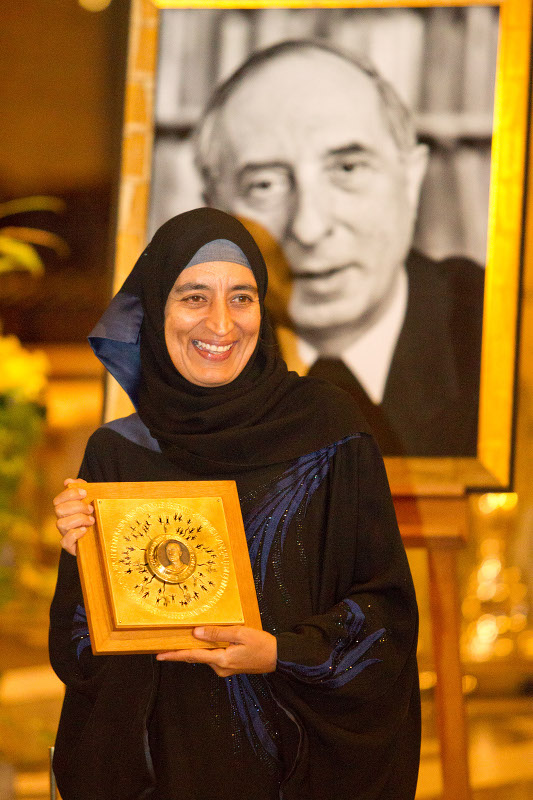
Foto: Martin Felder

Foto: Ulrike Comes
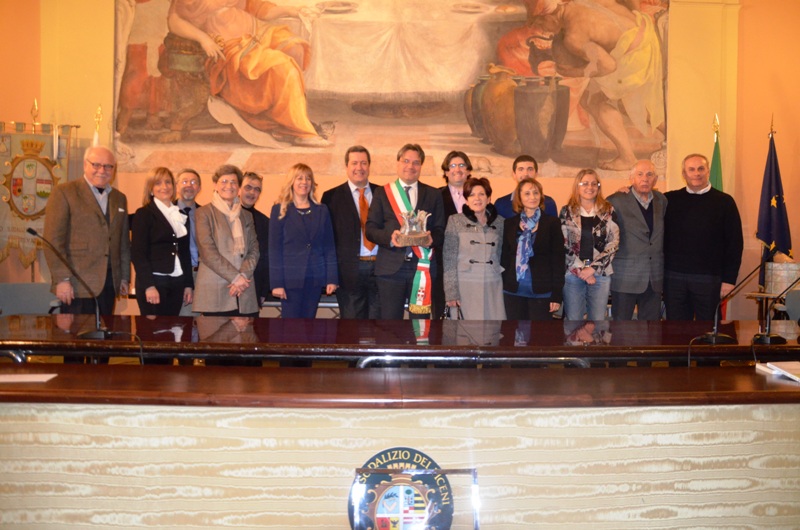
Jan 30, 2016 | Focolare Worldwide
 Asti, the Piedmont (Italy) municipality renowned worldwide for its wines and an old pre-Roman settlement, boasts another first: that of being the first Italian municipality to have inserted the principle of Fraternity in its Municipal Statutes, as one of the main inspiring principles. «The Municipality of Asti considers the value of Fraternity as the condition for its political actions, in the common awareness that diversity is enrichment and to which every person elected in this institution is subjected to, and who should thus be recognised with equal dignity and respect and is therefore called to place the good of the community before partial interests, whether personal, of the group or the political party.» This is the text that passed with a unanimous vote on 19 February 2015, and won for the Municipality, the prize awarded in Rome by Mayor Fabrizio Brignolo last 22 January. How is this inspiring principle concretely practiced by the citizens? At the awarding of the prize, the Mayor of Asti recalled how the Asti community is very active in projects that express the value of fraternity in a concrete way: in the issue of welcoming the refugees with individual projects, a system of social services that targets to involve the beneficiaries in projects of recovery of independence in the employment and social fields, to name a few. So is the Municipality’s political life very simple? Not at all. A municipal councillor said: «The truth is, despite the fact that our ideals and political and cultural differences will not be eliminated, it also holds that moments of tension and conflicts will not be missing in our political –administrative debate. But it is likewise true that, from today onwards, we have a reference point and an extra precious tool that pushes us to seek the grounds for sharing, and in which we can exercise a serene approach to the building of fraternity. It is certainly a difficult challenge which we intend to win with courage and confidence. » The prize of the association, Cities for Fraternity, was awarded last 22 January by the president, Milvia Monachesi, Mayor of Castelgandolfo, together with Alba Sgariglia and João Manuel Motta of the Chiara Lubich Centre of the Focolare Movement, during the convention entitled, “Can Fraternity become a norm?” emceed by the journalist, Gianni Bianco, in the capital’s Hall, Pio Sodalizio dei Piceni (watch the live shoot ). Of great significance were the speeches of Prof. Filippo Pizzolato (Bicocca University, Milan) and Tiziano Vecchiato (Scientific Director of the Zancan Foundation, Padova), and the round table of the experiences and conflicts of the Municipalities that have inserted the principle of fraternity in their statutes: Asti, Bra, Grottaferrata and Rocca di Papa. Other honours were conferred to three other Municipalities: • Special Honours for the City of Rocca di Papa, which had launched the project of United Cities for Fraternity: «From darkness to light: “Wednesdays in the village”» with the mission to “enlighten the outstanding features and reunite hearts and minds” of the inhabitants – both Italians and of other nationalities – of Rocca di Papa. • Special Honours for the Municipality of Tolentino for the project, “Tolentino – city for fraternity” and the organisation of the “Fraternity Dinner,” a traditional event with the cooperation of the voluntary associations and citizens, where the funds collected were assigned to the poor people in the municipality. • Special Honours for the Municipality of Grottaferrata for the insertion of the value of Fraternity in the Municipal Statutes, as the condition for political action, unanimously approved by the Municipal Council on 27 April 2015. https://www.youtube.com/watch?v=cEtFoAdo6IE https://www.youtube.com/watch?v=P9bfpKF30Wk
Asti, the Piedmont (Italy) municipality renowned worldwide for its wines and an old pre-Roman settlement, boasts another first: that of being the first Italian municipality to have inserted the principle of Fraternity in its Municipal Statutes, as one of the main inspiring principles. «The Municipality of Asti considers the value of Fraternity as the condition for its political actions, in the common awareness that diversity is enrichment and to which every person elected in this institution is subjected to, and who should thus be recognised with equal dignity and respect and is therefore called to place the good of the community before partial interests, whether personal, of the group or the political party.» This is the text that passed with a unanimous vote on 19 February 2015, and won for the Municipality, the prize awarded in Rome by Mayor Fabrizio Brignolo last 22 January. How is this inspiring principle concretely practiced by the citizens? At the awarding of the prize, the Mayor of Asti recalled how the Asti community is very active in projects that express the value of fraternity in a concrete way: in the issue of welcoming the refugees with individual projects, a system of social services that targets to involve the beneficiaries in projects of recovery of independence in the employment and social fields, to name a few. So is the Municipality’s political life very simple? Not at all. A municipal councillor said: «The truth is, despite the fact that our ideals and political and cultural differences will not be eliminated, it also holds that moments of tension and conflicts will not be missing in our political –administrative debate. But it is likewise true that, from today onwards, we have a reference point and an extra precious tool that pushes us to seek the grounds for sharing, and in which we can exercise a serene approach to the building of fraternity. It is certainly a difficult challenge which we intend to win with courage and confidence. » The prize of the association, Cities for Fraternity, was awarded last 22 January by the president, Milvia Monachesi, Mayor of Castelgandolfo, together with Alba Sgariglia and João Manuel Motta of the Chiara Lubich Centre of the Focolare Movement, during the convention entitled, “Can Fraternity become a norm?” emceed by the journalist, Gianni Bianco, in the capital’s Hall, Pio Sodalizio dei Piceni (watch the live shoot ). Of great significance were the speeches of Prof. Filippo Pizzolato (Bicocca University, Milan) and Tiziano Vecchiato (Scientific Director of the Zancan Foundation, Padova), and the round table of the experiences and conflicts of the Municipalities that have inserted the principle of fraternity in their statutes: Asti, Bra, Grottaferrata and Rocca di Papa. Other honours were conferred to three other Municipalities: • Special Honours for the City of Rocca di Papa, which had launched the project of United Cities for Fraternity: «From darkness to light: “Wednesdays in the village”» with the mission to “enlighten the outstanding features and reunite hearts and minds” of the inhabitants – both Italians and of other nationalities – of Rocca di Papa. • Special Honours for the Municipality of Tolentino for the project, “Tolentino – city for fraternity” and the organisation of the “Fraternity Dinner,” a traditional event with the cooperation of the voluntary associations and citizens, where the funds collected were assigned to the poor people in the municipality. • Special Honours for the Municipality of Grottaferrata for the insertion of the value of Fraternity in the Municipal Statutes, as the condition for political action, unanimously approved by the Municipal Council on 27 April 2015. https://www.youtube.com/watch?v=cEtFoAdo6IE https://www.youtube.com/watch?v=P9bfpKF30Wk
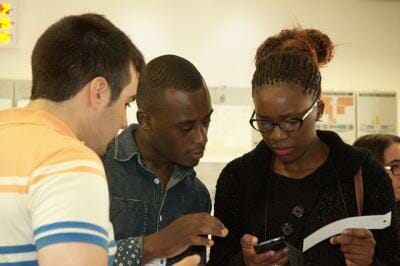
Jan 29, 2016 | Non categorizzato
 «I’m African and studying in Northern Italy. Some time ago I read an article in a magazine, in which the author said that a “dark night” is pervading every aspect of western culture, leading to a loss of the authentic Christian values. Sincerely, I did not understand what this meant, until something happened to open my eyes. It was a Saturday afternoon. Some kids, neighbours of mine, invited me to go out with them and spend an evening together. They wanted to do something different. There were six or seven of us and we started the evening dancing in a local disco. Initially I enjoyed it and they said music ran in my blood, and I danced well. But soon I noticed that the people around me were dancing without any respect for themselves or for the others. They were not dancing for pure enjoyment but were launching ambiguous messages. A small voice inside me told me to go against the current and dance with dignity and out of love. After a few hours, my friends suggested we go to another club. I trusted them since they were my friends, and so I accepted. In this other club it did not take long for me to realize where we had landed. The music was very loud, psychedelic lights pulsed to the rhythm, an acrid smell started to diffuse, and I was astonished. This was not a normal disco, and the girls prostituted themselves. I was disappointed and angry. Without saying a word, I turned on my heel and left. One of my friends came after me. He insulted me, saying I was slow in the head. I did not answer. After a few minutes, another one came, but this time he did not insult me, but said I was right. Lastly, another sneaked out of the club and also he said I was right. I was surprised. I had created a countercurrent chain. Without even speaking of the Christian ideals I believe in, or of God, the others had seen and understood. A few months passed and I had completely forgotten that episode. One day, a boy, who had been with us that evening, came to me saying he regretted it and would never again frequent that type of club. I was astonished. Evidently, Jesus was working on him. This experience has helped me to see in a more radical way, the need to risk and say “no” to certain proposals of the world, because it is our testimony that strikes people, even though we are unaware of it.» (Yves, Cameroon) From “Una buona notizia, gente che crede gente che muove”, Chiara Favotti, Ed. New City 2012
«I’m African and studying in Northern Italy. Some time ago I read an article in a magazine, in which the author said that a “dark night” is pervading every aspect of western culture, leading to a loss of the authentic Christian values. Sincerely, I did not understand what this meant, until something happened to open my eyes. It was a Saturday afternoon. Some kids, neighbours of mine, invited me to go out with them and spend an evening together. They wanted to do something different. There were six or seven of us and we started the evening dancing in a local disco. Initially I enjoyed it and they said music ran in my blood, and I danced well. But soon I noticed that the people around me were dancing without any respect for themselves or for the others. They were not dancing for pure enjoyment but were launching ambiguous messages. A small voice inside me told me to go against the current and dance with dignity and out of love. After a few hours, my friends suggested we go to another club. I trusted them since they were my friends, and so I accepted. In this other club it did not take long for me to realize where we had landed. The music was very loud, psychedelic lights pulsed to the rhythm, an acrid smell started to diffuse, and I was astonished. This was not a normal disco, and the girls prostituted themselves. I was disappointed and angry. Without saying a word, I turned on my heel and left. One of my friends came after me. He insulted me, saying I was slow in the head. I did not answer. After a few minutes, another one came, but this time he did not insult me, but said I was right. Lastly, another sneaked out of the club and also he said I was right. I was surprised. I had created a countercurrent chain. Without even speaking of the Christian ideals I believe in, or of God, the others had seen and understood. A few months passed and I had completely forgotten that episode. One day, a boy, who had been with us that evening, came to me saying he regretted it and would never again frequent that type of club. I was astonished. Evidently, Jesus was working on him. This experience has helped me to see in a more radical way, the need to risk and say “no” to certain proposals of the world, because it is our testimony that strikes people, even though we are unaware of it.» (Yves, Cameroon) From “Una buona notizia, gente che crede gente che muove”, Chiara Favotti, Ed. New City 2012
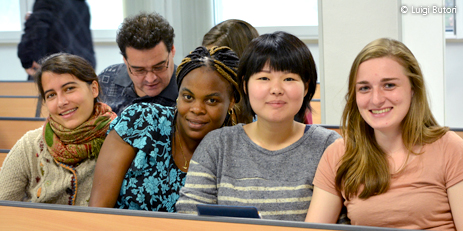
Jan 28, 2016 | Non categorizzato
 Sophia University Institute and the insertion of its graduates in the employment world: a more or less difficult relationship with respect to other academic programs? Eight years after the inauguration of the Sophia University Institute (SUI), the Italian professor of Social Research Methodology, performed a survey starting from these interrogatives. Some observations taken from the survey. The survey sample consisted in the first 80 SUI graduates, those who attended and concluded a two-year course with the achievement of a degree within the year 2014. In the first two months of 2015 this group was asked to respond to a semi-structured questionnaire, drafted to get some essential information on the professional pathways and lifestyles undertaken after their studies in Sophia. Out of a total of young graduates 61 gave their response (75% out of the total) coming from 30 different countries; their collaboration enabled to focus on the value their studies in Sophia played in their quest for a job. Above all the study programme concluded in the foreseen period of two years in 91% of the sample; 81% found a job within six months, and 96% within a year. Today 51% of the degree holders have a stable job, 26% have a temporary job; 62% of the cases have a full-time job, and 26% work part time, while for 13% have a second job. Most of the graduates (63%) are assigned roles of responsibility in companies, public administrations, universities and in other cultural, non-profit agencies: 28% are freelance professionals, entrepreneurs, consultants; 7% are top directors and managers, and 28% work in the field of scientific-cultural education and research. Effectiveness of the educational program, compared to the actual job placement seems to have been confirmed: more than two-thirds of the graduates (68%) think that the SUI programme offered is aligned with the job they now hold. This effectiveness is set in relation to some specific transverse skills the graduates retain to have achieved or strengthened during their studies in Sophia. They mention in particular the capacity to interact in a “plural” context under the cultural and disciplinary profile , and problem-solving skills through the integration of different perspectives and competences, and managing situation of conflict, working in synergy in with other social and cultural players, promoting innovative solutions. To note, lastly, that none of the graduates regretted having undertaken the chosen pathway: 72% would willing redo the course as is, while 28% would redo it and suggest some changes. Among these, they highlighted the lack of apprenticeship and internship available in the two-year programme, a priority targeted by the Institute’s competent Offices. “The analysis of the strong points is very interesting,” Licia Paglione commented, “above all studying at Sophia meant getting involved in a programme of discovery and maturation of one’s own relational identity, a pathway that includes and upholds intellectual resources and at the same time imbues the psychological, affective, spiritual and operational dimensions and urges each toward commitment.”
Sophia University Institute and the insertion of its graduates in the employment world: a more or less difficult relationship with respect to other academic programs? Eight years after the inauguration of the Sophia University Institute (SUI), the Italian professor of Social Research Methodology, performed a survey starting from these interrogatives. Some observations taken from the survey. The survey sample consisted in the first 80 SUI graduates, those who attended and concluded a two-year course with the achievement of a degree within the year 2014. In the first two months of 2015 this group was asked to respond to a semi-structured questionnaire, drafted to get some essential information on the professional pathways and lifestyles undertaken after their studies in Sophia. Out of a total of young graduates 61 gave their response (75% out of the total) coming from 30 different countries; their collaboration enabled to focus on the value their studies in Sophia played in their quest for a job. Above all the study programme concluded in the foreseen period of two years in 91% of the sample; 81% found a job within six months, and 96% within a year. Today 51% of the degree holders have a stable job, 26% have a temporary job; 62% of the cases have a full-time job, and 26% work part time, while for 13% have a second job. Most of the graduates (63%) are assigned roles of responsibility in companies, public administrations, universities and in other cultural, non-profit agencies: 28% are freelance professionals, entrepreneurs, consultants; 7% are top directors and managers, and 28% work in the field of scientific-cultural education and research. Effectiveness of the educational program, compared to the actual job placement seems to have been confirmed: more than two-thirds of the graduates (68%) think that the SUI programme offered is aligned with the job they now hold. This effectiveness is set in relation to some specific transverse skills the graduates retain to have achieved or strengthened during their studies in Sophia. They mention in particular the capacity to interact in a “plural” context under the cultural and disciplinary profile , and problem-solving skills through the integration of different perspectives and competences, and managing situation of conflict, working in synergy in with other social and cultural players, promoting innovative solutions. To note, lastly, that none of the graduates regretted having undertaken the chosen pathway: 72% would willing redo the course as is, while 28% would redo it and suggest some changes. Among these, they highlighted the lack of apprenticeship and internship available in the two-year programme, a priority targeted by the Institute’s competent Offices. “The analysis of the strong points is very interesting,” Licia Paglione commented, “above all studying at Sophia meant getting involved in a programme of discovery and maturation of one’s own relational identity, a pathway that includes and upholds intellectual resources and at the same time imbues the psychological, affective, spiritual and operational dimensions and urges each toward commitment.”
Jan 27, 2016 | Non categorizzato, Word of
[soundcloud url=”https://soundcloud.com/user-958772872/word-of-life-february-2016″ params=”color=ff5500&auto_play=false&hide_related&visual=false&show_comments=true&show_user=true&show_reposts=false” width=”100%” height=”166″ iframe=”true” /]
This Word of Life is an invitation to believe in God’s loving action even where his presence is not felt. It is a proclamation of hope and challenge that we too might we become instruments of consolation. Who hasn’t seen a crying child throw itself into its mother’s arms? Whatever the matter is, important or not, the mother dries its tears, covers it with tenderness and, bit by bit, it starts to smile again. Her presence and loving kindness are enough. God behaves like this with us, and compares himself to a mother. These words are how God speaks to his people on their return from exile in Babylon. They had seen their homes and the Temple demolished and had been deported to a foreign land where they felt lost and grief-stricken; now, returning to their homeland, the people had to rebuild from the rubble of destruction. The tragedy Israel had lived through is repeated by many war-torn peoples, victims of terrorist atrocities or inhuman exploitation. Houses and streets ripped apart, sites symbolic of a cultural identity razed to the ground, goods pillaged, places of worship destroyed. How many people kidnapped, millions forced to flee, thousands dying in deserts or at sea! It looks like an apocalypse. This Word of Life is an invitation to believe in God’s loving action also where his presence is not felt. It is a proclamation of hope. He is beside the one who suffers persecution, injustice, exile.
He is with us, with our family, with our people. He knows our personal pain and that of the whole human race. He became one of us, to the point of dying on a cross. This is why he knows how to understand us and comfort us. Just like a mother who takes her child onto her lap and comforts it. We need to open our eyes and hearts to ‘see him’. To the extent that we experience the tenderness of his love, we will be able to transmit it to those who live in pain and under trial, so that we become instruments of consolation. Paul, too, suggests it to the Corinthians: ‘console those who are in any affliction with the consolation with which we ourselves are consoled by God’ (2 Cor. 1:4).
This was also a deeply personal and specific experience of Chiara Lubich: ‘Lord, give me all who are lonely … I have felt in my heart the passion that fills your heart for all of the forsakenness in which the whole of the world is drifting. I love everyone who is sick and alone. Who consoles their weeping? Who mourns their slow death? Who presses to their own heart, the heart in despair? My God, let me be in this world the tangible sacrament of your love; let me be your arms that press to themselves and consume in love all the loneliness of the world.’ 1
Edited by Fabio Ciardi
This Word of Life was chosen by an ecumenical group in Germany. We are living it together with brothers and sisters from many different Churches. Our hope is that our lives throughout the year may be accompanied by the promise from God that it contains. 1 Chiara Lubich, Meditations (London : New City, 2005), 24
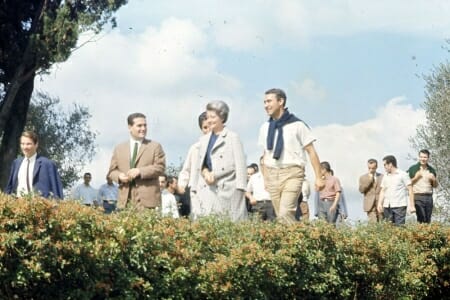
Jan 27, 2016 | Non categorizzato
Following the request put by the Focolare Movement on 7th December 2013 to the Rt Rev. Raffaello Martinelli, Bishop of Frascati, on 27th January last year Chiara Lubich’s cause of Beatification was opened. “Our only wish is to offer the Church and humankind the gift that Chiara was for us and for a vast number of people” said Maria Voce, President of the Focolare Movement on that occasion. “Receiving the charism God gave her … Chiara worked so that this pathway of Gospel life could be followed by many people. She always renewed her determination to help all those she met to put God in the first place in their lives and to “become saints together”. Her vision and her heart were motivated by a universal love which was able to embrace all people, going beyond all differences, and always directed towards fulfilling the testament of Jesus: “May they all be one”.
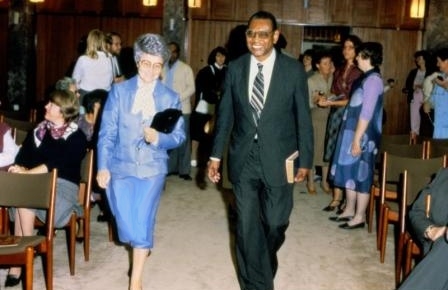
1982: Chiara Lubich with Philip Potter at the World Council of Churches (WCC)
 We too have a path. … For us it is God’s will to walk along a collective pathway to holiness. To do so we need to keep in mind two aspects of our spirituality which we cannot do without. We cannot become saints if the Risen Lord is not living in us and among us. We are in the midst of the world and whichever way we turn we find something that is in contradiction to Christ and his way of thinking. In the world there is an atmosphere of consumerism, hedonism, materialism and secularism everywhere. How can we bring the presence of God effectively and constantly into today’s society more and more? How can we avoid the world’s snares? How can we stick to the decisions we make in moments of grace? Our Lady has given us a great way of doing this in her Work. She has built up everywhere, in different ways, smaller or larger communities whose vocation it is to keep Jesus present in their midst. This means, therefore, not only overcoming personal problems by embracing Jesus Forsaken so that the Risen Lord can live in us, but it also means building unity with our brothers and sisters so that the Risen Lord can be in our midst. She knows that on our own, in a world like ours, it would be difficult to manage. For that reason she “invented” this spirituality which is called collective, precisely because it is lived by many people together …».
We too have a path. … For us it is God’s will to walk along a collective pathway to holiness. To do so we need to keep in mind two aspects of our spirituality which we cannot do without. We cannot become saints if the Risen Lord is not living in us and among us. We are in the midst of the world and whichever way we turn we find something that is in contradiction to Christ and his way of thinking. In the world there is an atmosphere of consumerism, hedonism, materialism and secularism everywhere. How can we bring the presence of God effectively and constantly into today’s society more and more? How can we avoid the world’s snares? How can we stick to the decisions we make in moments of grace? Our Lady has given us a great way of doing this in her Work. She has built up everywhere, in different ways, smaller or larger communities whose vocation it is to keep Jesus present in their midst. This means, therefore, not only overcoming personal problems by embracing Jesus Forsaken so that the Risen Lord can live in us, but it also means building unity with our brothers and sisters so that the Risen Lord can be in our midst. She knows that on our own, in a world like ours, it would be difficult to manage. For that reason she “invented” this spirituality which is called collective, precisely because it is lived by many people together …».
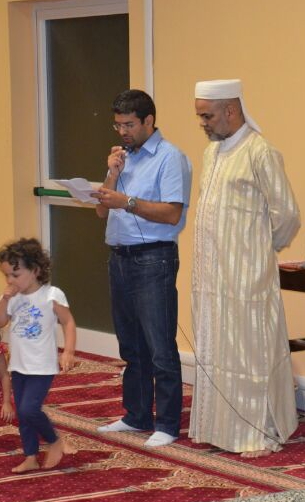
Jan 27, 2016 | Focolare Worldwide
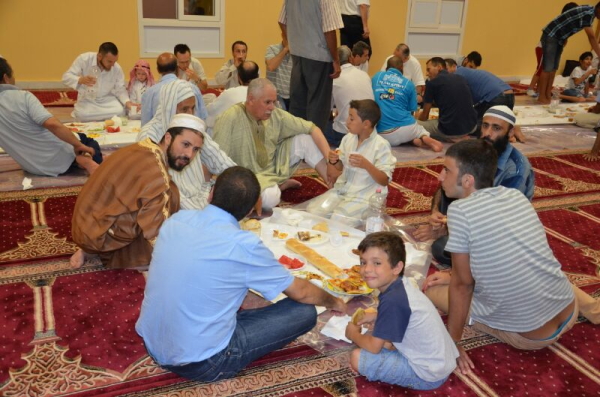 It all began in 2002, when the local community of the Focolare Movement met Mustapha Baztami, the Imam of the Muslim community of Teramo, truly a man of God who was so struck by the spirituality of unity that he has become its tireless promoter. Since then there have been many moments when both communities came together to share insights and reflections, such as how the Qur’an and the Bible view the family; they also gathered to share foods and flavours and seeing colours and fragrances blend into one, like the people who savoured them. But the real challenge has been to make a joint experience of friendship and solidarity as Muslims and Christians . One day Mustapha’s wife had a serious accident. The prolonged hospitalisation, also in other cities of Italy, gave the Focolare community the opportunity to stand at their side as brothers and sisters. It was like a contest of love between those who gave and those who received, and that became fertile ground for other initiatives, such as the creation of a literary competition called “Different but one”. For the past fifteen years they have made the weekly commitment to work side by side throughout the whole year. “Being children of God is what unites us. This is what gives you the freedom to share your story at the microphone, or to simply smile at a joke, or letting a few tears fall without feeling embarrassed,” states Donato of the Focolare. “You look at me without prejudices,” affirms a Muslim woman.
It all began in 2002, when the local community of the Focolare Movement met Mustapha Baztami, the Imam of the Muslim community of Teramo, truly a man of God who was so struck by the spirituality of unity that he has become its tireless promoter. Since then there have been many moments when both communities came together to share insights and reflections, such as how the Qur’an and the Bible view the family; they also gathered to share foods and flavours and seeing colours and fragrances blend into one, like the people who savoured them. But the real challenge has been to make a joint experience of friendship and solidarity as Muslims and Christians . One day Mustapha’s wife had a serious accident. The prolonged hospitalisation, also in other cities of Italy, gave the Focolare community the opportunity to stand at their side as brothers and sisters. It was like a contest of love between those who gave and those who received, and that became fertile ground for other initiatives, such as the creation of a literary competition called “Different but one”. For the past fifteen years they have made the weekly commitment to work side by side throughout the whole year. “Being children of God is what unites us. This is what gives you the freedom to share your story at the microphone, or to simply smile at a joke, or letting a few tears fall without feeling embarrassed,” states Donato of the Focolare. “You look at me without prejudices,” affirms a Muslim woman.  The effects of this dialogue haven’t gone unnoticed in the region. A Catholic association invited Mustapha and Donato to speak at an Islamic-Christian seminar. Things were going well, but the views of some participants regarding women in Islam created tensions in the hall. Mustapha and Donato interceded by saying that their friendship was based on a mutual desire to love which rises above culture and religion, seeking what unites rather than what might divide. “My life has changed dramatically,” says Mustapha, “since I met Chiara Lubich, a white and western Christian woman. She taught me to love everyone and to be the first to love.” From that moment on, the seminar took a different turn. One of the organizers went up to embrace him, saying, “Brother, I have realized that human reasoning is nothing compared to love.” Summer came and with it the desire to go on a family trip to the mountains together with the two communities. Upon arrival, the Muslim men unloaded flour, meat, vegetables, spices, pots and pans, while the women took their place in the kitchen in the nearby refectory. The Christians were no different: they took out homemade bread, stuffed olives and chicken dishes. As on any outing spent with friends, there were children’s games, chats, couscous, tea, long walks. Though totally unplanned, each moment was precious in consolidating a friendship that had gradually grown deeper. The next day, Mustapha sent a message saying, “… Let us ask God, the Most High, to continue illuminating our common pathways.” When the local bishop was asked to report to the prefecture on the relationship of his Catholic diocese with the Islamic community, he made reference to this experience of true dialogue.
The effects of this dialogue haven’t gone unnoticed in the region. A Catholic association invited Mustapha and Donato to speak at an Islamic-Christian seminar. Things were going well, but the views of some participants regarding women in Islam created tensions in the hall. Mustapha and Donato interceded by saying that their friendship was based on a mutual desire to love which rises above culture and religion, seeking what unites rather than what might divide. “My life has changed dramatically,” says Mustapha, “since I met Chiara Lubich, a white and western Christian woman. She taught me to love everyone and to be the first to love.” From that moment on, the seminar took a different turn. One of the organizers went up to embrace him, saying, “Brother, I have realized that human reasoning is nothing compared to love.” Summer came and with it the desire to go on a family trip to the mountains together with the two communities. Upon arrival, the Muslim men unloaded flour, meat, vegetables, spices, pots and pans, while the women took their place in the kitchen in the nearby refectory. The Christians were no different: they took out homemade bread, stuffed olives and chicken dishes. As on any outing spent with friends, there were children’s games, chats, couscous, tea, long walks. Though totally unplanned, each moment was precious in consolidating a friendship that had gradually grown deeper. The next day, Mustapha sent a message saying, “… Let us ask God, the Most High, to continue illuminating our common pathways.” When the local bishop was asked to report to the prefecture on the relationship of his Catholic diocese with the Islamic community, he made reference to this experience of true dialogue.

 “One can either walk away from the problems in another’s life or embrace the challenge head on. For a Movement that has chosen the suffering face of Jesus on the Cross, it is only natural that the Focolare in Mumbai chose to welcome the challenges among its communities with love and dedication,” writes Annabel, a young journalist, member of the Focolare in Mumbai. Santacruz Project and Udisha have come to symbolize the Movement’s strong commitment to social justice, universal fraternity and, above all, love for Jesus in the other in this city. Santacruz Project started in 1992 as a direct response to the needs of families struggling with poverty, addictions and lack of jobs. It provides basic food rations and household supplies so that children from these homes can continue their education. “We realized that many of these little girls attending our activities didn’t even have enough to eat at home. In order to love them concretely, we had to empower their families to give them enough food and keep them in school. We struggled initially to fund this project, pulling together our resources and gathering contributions from the larger Focolare family here in India. I’m happy that we’ve been able to sustain this project for over 25 years now,” says Joan Viegas, one of the earliest volunteers from Mumbai involved in the project. “Somewhere along the way we realized that spiritual nourishment was equally necessary for these families to face society’s challenges. We organized Word of Life meetings for the girls’ mothers who desperately needed a space to express themselves, share their troubles and find spiritual strength. One of us, Josephine Passanha who is passed away, started conducting meetings in Konkani for these women who could not speak English, and also organized useful workshops on life skills such as budgeting and family planning to empower them.“
“One can either walk away from the problems in another’s life or embrace the challenge head on. For a Movement that has chosen the suffering face of Jesus on the Cross, it is only natural that the Focolare in Mumbai chose to welcome the challenges among its communities with love and dedication,” writes Annabel, a young journalist, member of the Focolare in Mumbai. Santacruz Project and Udisha have come to symbolize the Movement’s strong commitment to social justice, universal fraternity and, above all, love for Jesus in the other in this city. Santacruz Project started in 1992 as a direct response to the needs of families struggling with poverty, addictions and lack of jobs. It provides basic food rations and household supplies so that children from these homes can continue their education. “We realized that many of these little girls attending our activities didn’t even have enough to eat at home. In order to love them concretely, we had to empower their families to give them enough food and keep them in school. We struggled initially to fund this project, pulling together our resources and gathering contributions from the larger Focolare family here in India. I’m happy that we’ve been able to sustain this project for over 25 years now,” says Joan Viegas, one of the earliest volunteers from Mumbai involved in the project. “Somewhere along the way we realized that spiritual nourishment was equally necessary for these families to face society’s challenges. We organized Word of Life meetings for the girls’ mothers who desperately needed a space to express themselves, share their troubles and find spiritual strength. One of us, Josephine Passanha who is passed away, started conducting meetings in Konkani for these women who could not speak English, and also organized useful workshops on life skills such as budgeting and family planning to empower them.“  During her first visit to India in 2001, Chiara encouraged the members of the Focolare in Mumbai to reach out even further to people at the periphery of society. This gave a strong thrust to the already on-going Udisha Project in Goregaon which focusses on the holistic development of children from underprivileged backgrounds. Literally translating as a ‘ray of light’ in Sanskrit, Udisha is lighting up the lives of over 120 children today through its various activities such as academic tuition classes, occupational therapy, anger management sessions, medical camps and programs promoting value education and parenting skills. Counselling has becoming one of Udisha’s key specialisations, helping many children and their parents solve many day-to-day challenges, sometimes even saving lives from suicidal tendencies. Self-Help Groups empower mothers of these children to manage their household income and supplement it by starting small enterprises such as crochet bag making, catering and beautician services.
During her first visit to India in 2001, Chiara encouraged the members of the Focolare in Mumbai to reach out even further to people at the periphery of society. This gave a strong thrust to the already on-going Udisha Project in Goregaon which focusses on the holistic development of children from underprivileged backgrounds. Literally translating as a ‘ray of light’ in Sanskrit, Udisha is lighting up the lives of over 120 children today through its various activities such as academic tuition classes, occupational therapy, anger management sessions, medical camps and programs promoting value education and parenting skills. Counselling has becoming one of Udisha’s key specialisations, helping many children and their parents solve many day-to-day challenges, sometimes even saving lives from suicidal tendencies. Self-Help Groups empower mothers of these children to manage their household income and supplement it by starting small enterprises such as crochet bag making, catering and beautician services.  “Udisha has evolved into a full-fledged organisation with the help of the larger Focolare community all over Mumbai, as well as with the Support at a Distance help we receive from the New Families Movement of the Focolare”, says Brian D’Silva, who has been spearheading the project since the beginning. “We try to reach out to more families every day, always bearing in mind that it is Jesus who we serve in each individual. It gives me great satisfaction to see our children from Udisha who are well-educated, employed and positively contributing to society today.”
“Udisha has evolved into a full-fledged organisation with the help of the larger Focolare community all over Mumbai, as well as with the Support at a Distance help we receive from the New Families Movement of the Focolare”, says Brian D’Silva, who has been spearheading the project since the beginning. “We try to reach out to more families every day, always bearing in mind that it is Jesus who we serve in each individual. It gives me great satisfaction to see our children from Udisha who are well-educated, employed and positively contributing to society today.”













 It all began in 2002, when the local community of the
It all began in 2002, when the local community of the